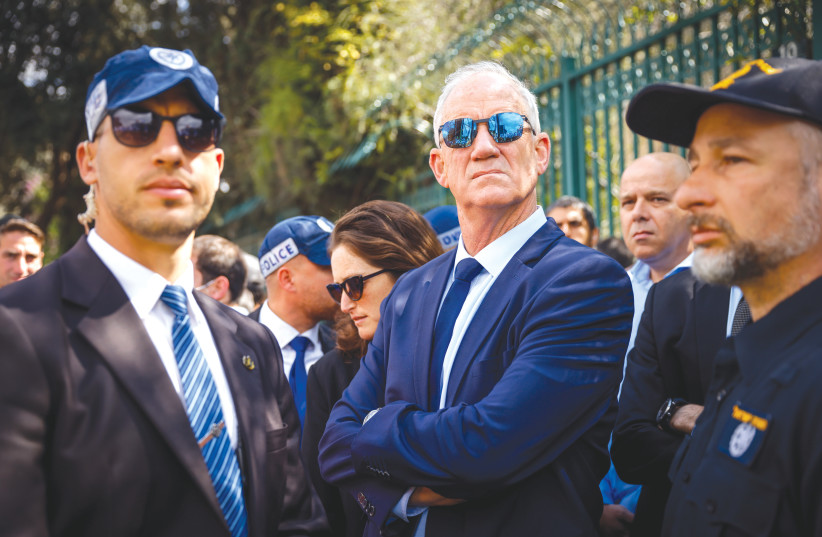Coalition and opposition negotiating teams held extensive discussions over the government’s proposed judicial reforms at President Isaac Herzog’s residence on Monday and Tuesday, in preparation for marathon negotiations days likely to commence next week.
These discussions included a three-hour one on Monday between the representatives of the coalition and those of Yesh Atid and National Unity, with professional advisers and constitutional law experts also present.
The meeting focused on building the framework for the resumption of the talks after Passover. Yesh Atid and National Unity’s teams also met to coordinate their positions.
National Unity said in a statement on Tuesday that all sides had agreed to party chairman MK Benny Gantz’s request, to begin with the issue of the Judicial Selection Committee.

The reason for the request was two-fold: First, the issue was at the heart of the reforms since it dealt with the principle of non-politicization of the courts. Solving it would allow progress and trust building, while failure to solve it would render the rest of the talks pointless.
Second, a coalition law to alter the Judicial Selection Committee such that the coalition has a majority is ready for its second and third reading in the Knesset and can be brought forward quickly. The threat of it passing should be pushed aside first, the party explained.
Yesh Atid on Tuesday presented what it called the “foundations of dialogue,” calling it “a new contract for the State of Israel.”
'A new contract for the State of Israel'
The purpose of the contract is to "anchor Israel's values as a Jewish and democratic state in the spirit of the principles of the Declaration of Independence, which will serve as an introduction and foundation for a constitution."
The presentation included three clauses:
• Amending the Basic Law: The Judiciary in order to safeguard an “independent, diverse and impartial justice system,
• Legislating a Basic Law: Human and Civil Rights, which would anchor freedoms such as speech, religion, assembly and education – which currently do not appear explicitly in Israel’s basic laws, and
• Legislating a Basic Law: The Legislature, in order to set the mechanism for the legislation and amendment of Basic Laws, and to anchor the balance of powers between the legislative and judicial branches of government.
The coalition’s negotiating team issued a statement on Tuesday saying that it was making “every effort” to reach broad consensus over a “worthy” judicial reform, but that “ultimatums” and “disseminating slogans to the press” would not create agreement.
“We call on all the parties to show restraint and responsibility, and to understand the enormity of the moment,” the team said.
“The coalition insists on its right to advance a reform to ensure the return of balance versus the judicial branch as is accepted in the Western world,” the team added, concluding that it was “dedicated to advancing the safeguarding of human rights in Israel and is negotiating at the President’s Residence in order to arrive at agreements that will dispel the mistaken concerns over any harm to them.”
On April 3, the coalition and opposition negotiating teams decided that the debates were to be held mostly between law experts until the end of Passover, with the intention of mapping out the main points of argument, the positions on each side and possible compromises.
This was to be the basis of a document that the politicians will then begin to debate after the holiday, with the hope of reaching an agreement before the Knesset convenes for its summer session on April 30.
The coalition’s negotiating team consists of Strategic Affairs Minister Ron Dermer, Education Minister Yoav Kisch, Cabinet Secretary Yossi Fuchs, Likud MKs Hanoch Milvetsky and Keti Shitrit, Kohelet Forum Legal Department head Dr. Aviad Bakshi and Prof. Talia Einhorn.
National Unity’s negotiating team consists of MKs Gideon Sa’ar, Chili Tropper, Orit Farkash-HaCohen and Attorney Ronen Aviani.
Yesh Atid’s negotiating team consists of MKs Orna Barbivai and Karin Elharrar, former director-general of the Prime Minister’s Office Naama Schultz and Attorney Oded Gazit.
